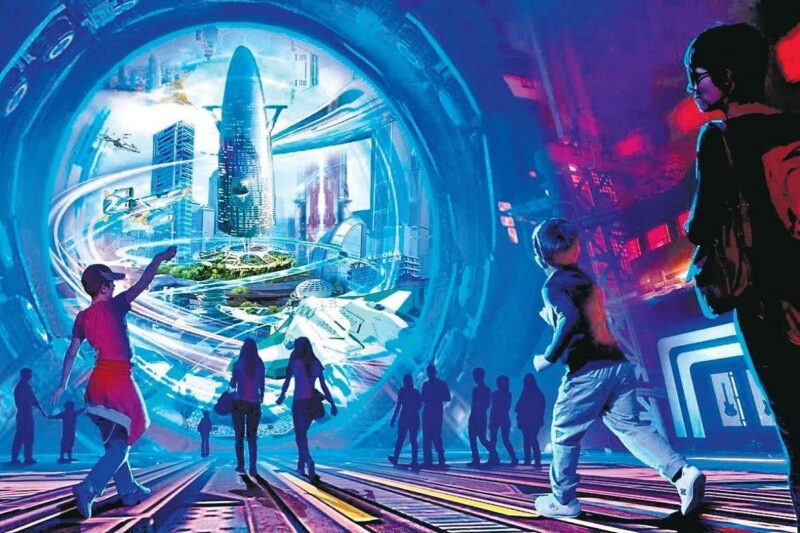In 1992, audiences poured over Neil Stephenson’s sci-fi dystopia “Snow Crash” which envisioned a world, post an economic collapse. The book also introduced a concept of a perfect virtual world known as the Metaverse: A perfectly symmetrical planet owned by a massive corporation that sells virtual real estate, food, and various other products to its users. Fast forward 30 years into the future and here we are. The world Stephenson envisioned for us, all those years ago, is now on its way to becoming our reality.
Last October, Facebook introduced “Meta”, the face of the new direction it was taking as a company. The company announced its idea for a metaverse: a way of bridging the gap between reality and fiction. The metaverse is a 3D world that incorporates elements of the real world to create a creative yet realistic experience. If you’ve seen or read Ready Player One, you’re probably already pointing out similarities and metaphors alluding to the future of our existence. For that, you’d be right. The metaverse proposes a whole new extension to our life that allows us to hang out with friends in virtual worlds, host virtual events (concerts, movies), create virtual art, play sports, and do everything else under the sun. The metaverse is frighteningly close to the facets of everyday life.
“In recent decades, technology has given people the power to connect and express themselves more naturally. When I started Facebook, we mostly typed text on websites. When we got phones with cameras, the internet became more visual and mobile. As connections got faster, the video became a richer way to share experiences. We’ve gone from desktop to web to mobile; from text to photos to video. But this isn’t the end of the line.”, says Facebook (now Meta). The goal of connectivity and creation is at the forefront of the project. In the promotional video, we see a character immediately transported into a virtual meet with his friends‘ avatars. In this, they are able to meet each other without having to add to the carbon footprint or deal with scheduling conflicts. It begs the question, why would we want to leave our home?
This is not the only problem though as Facebook has a troubling past. The biggest offense committed so far is the selling of users’ personal data, primarily to British consulting firm Cambridge Analytica, for the use of creating specialized political advertisements. This and a slew of other anti-trust violations include tax avoidance, real-name user requirement policies, censorship policies, poor handling of user data, and involvement in the United States PRISM surveillance program. With a track record as bad as Facebook and Zuckerberg’s, why would someone ever want to be within 6 feet of a metaverse-capable device? This combined with the lack of end-to-end encryption is incredibly dangerous. Giving a company such as Facebook this much control over our daily activities could spell the end of our privacy.
In the metaverse’s defense, it does provide a truly thoughtful experience in a post-pandemic world. Covid has shown us that within a mere 48 hours, the entire world can go into a panic and shut down indefinitely. At the will of nature, science, and maybe even god, the norm can be shifted completely. With people being unable to safely meet in person, an idea of a metaverse does seem useful. A realistic world that provides 100s of activities (even ones that you NEVER thought you would do, visiting space or skydiving) all from the comfort of your own home is an incredibly tantalizing prospect. Going to a virtual movie theater or playing cards dressed as your favorite characters on the Planet Arrakis from Dune is just as fun as it would be in person. It not only presents a great alternative for consumers, but a great outlet for companies who want to sell their products and services and reach a new audience. Regal and AMC can sell tickets for virtual screenings and Macy’s can have virtual malls to shop in and try on clothes without needing the customer lifting their legs.
The metaverse is an exciting prospect, but is it one that you want in your home at all times?






